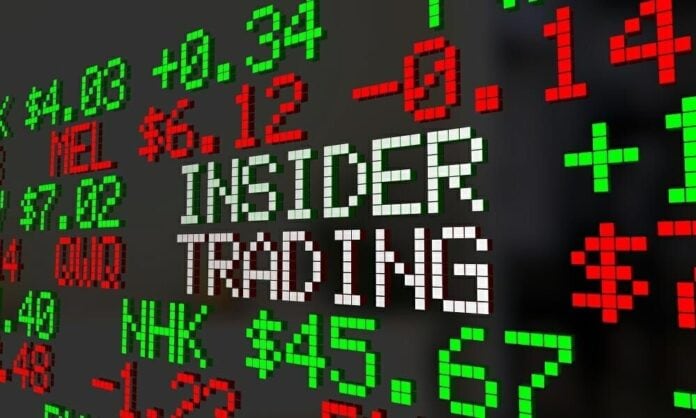Would stricter insider trading regulations make financial markets fairer? China’s 2017 sell-by-plan mandate was designed to do just that by requiring corporate executives to predisclose stock sales – a move aimed at preventing them from cashing out before bad news breaks.
But a new study reveals a major loophole: Instead of stopping insider trading, some executives have found a way to game the system. They preschedule sales weeks in advance to quietly offload shares before their stock tanks.
Virginia Tech researcher Pengfei Ye and colleagues at the Shanghai University of Finance and Economics analyzed trading data before and after the mandate took effect. Their findings, published in the Journal of Accounting and Economics, reveal that while the rule reduces some forms of insider trading, it fails to stop executives from profiting from private information.
“Regulations can limit insider trading, but without strong corporate governance, insiders will always find new ways to work around them,” said Ye, assistant professor at Virginia Tech’s Pamplin College of Business.
Insiders still beating the market
When executives sell stock before bad news goes public, it undermines market fairness and erodes investor trust. China’s sell-by-plan mandate aimed to prevent this by requiring executives to announce their stock sales at least six months in advance.
To measure the policy’s impact, Ye’s team analyzed four years of trading data – two years before and two years after the rule was enacted – using a difference-in-differences approach. They compared insider trades with those of unregulated relatives to see whether opportunistic behavior declined.
The result? Opportunistic insider selling dropped by up to 12 percentage points after the mandate took effect – a sign that the regulation had some impact.
But a new form of exploitation emerged. Instead of making last-minute trades before bad news, executives started planning their sales far in advance, ensuring they could still profit from stock declines.
“Executives who know bad news is coming don’t need to trade at the last minute anymore,” Ye said. “They just set up a sell plan weeks in advance. By the time the news reaches the public, they’ve already cashed out.”
The study found that between 8.8 percent and 28.2 percent of predisclosed stock sales were likely motivated by insider knowledge of impending losses. These trades were far more common in companies with weak governance, while firms with stronger oversight saw little to no abuse.
Can markets detect insider abuse?
If executives are gaming the system, can the market tell the difference between routine stock sales and those based on private knowledge?
Ye and his research team tested this – and the results were alarming.
They found no significant difference in how the stock market reacted to genuine preplanned sales versus opportunistic ones. Investors simply couldn’t tell the difference.
“If the market can’t distinguish between routine and opportunistic trades, insiders can keep profiting without consequences,” Ye said.
This raises serious concerns about whether disclosure-based regulations actually protect investors – or if they just give insiders a legal cover to trade on private information.
How to close the loophole
One potential fix? A longer waiting period between when insiders announce a sale and when they can actually execute it.
Currently, China’s cooling-off period is just 15 trading days – far shorter than the 90-day waiting period required under the U.S. Securities and Exchange Commission’s (SEC) updated Rule 10b5-1.
But the study found that insiders in China typically learn about bad news at least 25 trading days in advance. This means the existing 15-day waiting period isn’t long enough to neutralize their advantage.
“A longer cooling-off period would make it harder for insiders to exploit private information,” Ye said. “But regulators also have to balance this against the needs of executives who sell stock for legitimate financial reasons.”
The findings contribute to a growing global debate: How can policymakers prevent insider trading without placing unfair restrictions on corporate executives?
Beyond China
China isn’t alone in struggling to regulate insider stock sales. The SEC’s Rule 10b5-1, originally designed to control insider trading through predisclosed plans, also has been criticized for allowing similar loopholes.
Ye hopes his research will inform future regulatory reforms to protect investors.
“Stronger corporate governance is key to preventing insiders from exploiting these loopholes,” Ye said.
Ye conducted the study with Qingsheng Zeng and Cheng Zhang of the Shanghai University of Finance and Economics. The research was supported by the National Natural Science Foundation of China.
By Whitney Slightham

